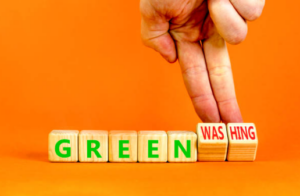Warning Signs That a Product or Company May Not Be What It Claims

In a world that is increasingly conscious of environmental and ethical concerns, many consumers are eager to support brands that are committed to sustainability and eco-friendliness. Unfortunately, not all companies live up to their green claims, and some engage in a deceptive practice known as “greenwashing.” Greenwashing occurs when a product or company exaggerates or misrepresents its environmental or ethical initiatives to appear more environmentally responsible than it actually is. This can mislead consumers and undermine the efforts of genuinely eco-conscious brands.
As a beauty enthusiast and conscious consumer, it’s essential to be aware of greenwashing and its warning signs. In this comprehensive guide, we’ll explore the concept of greenwashing and provide you with a set of red flags to watch out for when evaluating beauty products and companies’ claims. By recognizing these warning signs, you can make more informed and ethical choices as a consumer and support brands that genuinely prioritize sustainability and environmental responsibility.
What is Greenwashing?
Greenwashing is the deceptive practice of making false or misleading claims about the environmental or ethical attributes of a product, service, or company. These claims can take many forms, such as suggesting that a product is eco-friendly when it’s not, or exaggerating the positive impact of an environmental initiative.
Greenwashing is not a new concept, but it has gained prominence in recent years as consumers increasingly seek eco-friendly and sustainable products. The term “greenwashing” itself is a portmanteau of “green” (associated with environmentalism) and “whitewashing” (which means to cover up or gloss over negative aspects). It highlights the idea of concealing potentially harmful practices with a veneer of environmental responsibility.
Greenwashing is problematic for several reasons:
- Consumer Deception:
- False Trust: When consumers encounter greenwashing, they may develop a false sense of trust in a product or company’s environmental claims. This can lead to complacency, as consumers believe they are making responsible choices when they are not.
- Misaligned Values: Greenwashing misleads consumers into supporting companies that do not align with their true values. Those who genuinely care about environmental and ethical issues may inadvertently contribute to practices they oppose.
- Wasted Resources: When consumers invest in products with misleading green claims, they may spend more on these items, believing they are making a positive impact. This diverts resources away from products and brands that genuinely prioritize sustainability.
- Stifling Real Progress:
- Distracting from Genuine Initiatives: Companies engaged in greenwashing divert attention away from brands and products that genuinely invest in sustainable and ethical practices. This can discourage ethical brands from innovating and competing effectively in the market.
- Market Saturation: Greenwashing contributes to market saturation, making it difficult for consumers to differentiate between truly sustainable products and those that merely claim to be. This can lead to consumer skepticism and cynicism about sustainability claims in general.
- Environmental Impact:
- Resource Consumption: When consumers believe they are making environmentally responsible choices but are misled, it can lead to increased consumption of resources and energy, especially if the products are marketed as disposable or single-use.
- Waste Generation: False green claims can contribute to more waste if consumers believe that eco-friendly products have minimal environmental impact. In reality, these products may end up in landfills, contributing to pollution and waste issues.
- Cynicism and Mistrust:
- Eroding Trust: Ongoing exposure to greenwashing can erode consumers’ trust in companies and their sustainability claims. This can lead to a sense of cynicism and a belief that all environmental or ethical claims are exaggerated or insincere.
- Dampening Real Progress: Prolonged mistrust can deter consumers from supporting genuinely ethical and sustainable brands, making it harder for these companies to thrive and contribute to positive change.
To combat greenwashing and support genuinely eco-conscious brands, it’s essential to be able to identify warning signs.
Greenwashing is not a black-and-white issue; it occurs along a spectrum. Some cases are more blatant and deceptive, while others may involve well-intentioned but misleading marketing. Understanding this spectrum is crucial for making informed decisions.
At one end of the spectrum, we have brands that intentionally deceive consumers with false or exaggerated claims. These companies have no genuine commitment to sustainability and merely use green marketing as a sales tactic. Their primary goal is profit, and they exploit the growing demand for eco-friendly products without making any meaningful changes to their practices.
On the other end of the spectrum are brands that genuinely strive to become more sustainable but might overstate their accomplishments or miscommunicate their efforts. These companies may be well-intentioned but still engage in greenwashing unintentionally. While their actions may be more environmentally responsible than those at the deceptive end of the spectrum, their marketing and communication tactics can mislead consumers.
The key to combatting greenwashing is to identify red flags that can help you distinguish between genuinely eco-conscious brands and those that merely pretend to be.

Red Flags of Greenwashing in Beauty Products
- Lack of Certifications or Independent Verification:
- Red Flag: A brand claims to be eco-friendly or natural without providing any third-party certifications or independent verification.
- Why it’s a Red Flag: Certifications from reputable organizations, like the USDA Organic seal or cruelty-free certifications, demonstrate a brand’s commitment to meeting specific sustainability or ethical standards. Lack of certifications suggests the company may not meet the standards they claim.
- Vague or Unsubstantiated Claims:
- Red Flag: The product’s marketing materials contain vague or unsubstantiated claims like “green,” “natural,” or “eco-friendly” without providing specific details or evidence to support these assertions.
- Why it’s a Red Flag: Specific, verifiable claims and evidence are essential for consumers to understand a product’s sustainability or ethical attributes. Vague terms can be used to mislead consumers into thinking the product is more sustainable than it is.
- Focusing on a Single Green Attribute:
- Red Flag: A brand heavily markets a single green attribute, like being “paraben-free” or “vegan,” without addressing other significant sustainability issues.
- Why it’s a Red Flag: Focusing solely on one aspect can be a tactic to distract consumers from other non-sustainable practices within the company.
- No Transparent Sustainability Initiatives:
- Red Flag: The brand does not disclose any information about its sustainability initiatives, goals, or progress.
- Why it’s a Red Flag: Companies genuinely committed to sustainability should have transparent information about their initiatives, goals, and measurable progress.
- Hidden Trade-Offs:
- Red Flag: The product claims to be environmentally friendly but doesn’t address other trade-offs or negative impacts, such as excessive packaging or unsustainable sourcing.
- Why it’s a Red Flag: A true commitment to sustainability requires addressing the broader environmental impact of a product or company, not just isolated positive aspects.
- Unrealistic or Absurd Claims:
- Red Flag: The product’s marketing makes exaggerated or unrealistic claims, such as promising miraculous environmental benefits.
- Why it’s a Red Flag: Claims that sound too good to be true often are. Unrealistic promises can be a sign of greenwashing.
- Suggestive Imagery:
- Red Flag: The product uses images of nature or eco-friendly symbols in its marketing materials without a clear connection to the product’s sustainability efforts.
- Why it’s a Red Flag: Suggestive imagery can create a false impression of eco-friendliness, especially if the product itself lacks sustainability credentials.
- Misleading Product Names or Branding:
- Red Flag: The product or brand name suggests environmental friendliness, such as “GreenEarth Beauty,” but the company’s practices may not align with the name.
- Why it’s a Red Flag: Brands that use misleading names or branding are attempting to appear more eco-friendly than they truly are.

Real Green Beauty
Identifying greenwashing is crucial, but it’s equally important to know how to recognize brands and products that genuinely prioritize sustainability and ethics. Here are some steps you can take to ensure you’re supporting ethical and eco-conscious companies:
- Research the Brand: Investigate a brand’s sustainability initiatives, certifications, and transparency. Look for details on their website about their practices, goals, and measurable progress.
- Check for Independent Certifications: Seek out recognized certifications, like USDA Organic, Fair Trade, Leaping Bunny (cruelty-free), or others relevant to the product. These certifications indicate a commitment to specific sustainability or ethical standards.
- Read Ingredients Lists: Examine the ingredients in beauty products to see if they align with the brand’s sustainability claims. For instance, if a product claims to be all-natural but contains synthetic chemicals, it’s a red flag.
- Avoid Overly Hyped Claims: Be skeptical of products that promise extraordinary results or benefits without substantial evidence. Realistic claims are more likely to be accurate.
- Consider the Bigger Picture: Analyze the brand’s overall environmental impact, including factors like packaging, sourcing, and waste reduction. Truly sustainable companies address various aspects of their operations.
- Look for Independent Reviews: Read reviews and testimonials from other consumers to get an idea of their experiences with the brand or product. Real customers often provide valuable insights.
- Support Brands with a Track Record: Brands that have consistently demonstrated a commitment to sustainability and ethics over time are often more reliable choices.

As conscious consumers, it’s our responsibility to hold brands accountable and reward those genuinely committed to sustainability and ethics. By staying informed, asking questions, and researching our purchases, we can make more informed decisions that promote a more eco-friendly and ethical beauty industry.
The beauty industry plays a significant role in environmental and ethical concerns, and our choices as consumers have a real impact. By recognizing the red flags of greenwashing and actively supporting brands that are transparent and accountable, we can contribute to a more sustainable and ethically responsible beauty market. Remember, informed choices not only benefit you but also the planet and future generations.

